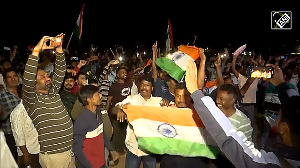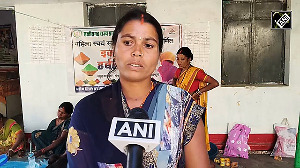The Supreme Court verdict dismissing the plea for mercy killing of 60-year-old Aruna Shanbaug was on Monday welcomed by the medical fraternity, including nurses looking after the comatose sexual assault victim, which cautioned that any move to legalise active euthanasia was fraught with dangers.
"India is not mature enough to handle euthanasia," said senior Bangaluru-based cardiologist Devi Prasad Shetty, while expressing his happiness over the verdict on Shanbaug, who has been in a vegetative state for 37 years after she was assaulted at a Mumbai hospital. "It will prevent many more premature deaths and people trying to take advantage of euthanasia. Financial constraints and inability to look after cannot be the reason to ask someone to terminate life. This is unacceptable. I am concerned with the fact that our country does not have the infrastructure to prevent the misuse. If the life of a wealthy elderly person is in question, people might take advantage of that," he said.
Shetty's view was shared by B K Goyal, chief cardiologist, Bombay Hospital. "It is a very emotional subject. We call it mercy killing; but there cannot be mercy and then killing. The two words just don't go together," he said and likened it to permitting medical termination of pregnancy.
There was joy among Aruna's former colleagues and nurses at the KEM hospital, who have been tending to her.
"We are happy that the apex court has recognised our efforts after all these years," Shanbaug's former associate Pamela Kushe, who first met Aruna when the latter was a student. "Nurses and her former colleagues at KEM have been looking after Aruna all these years like a family member," said Bhanuprita, a nurse. "As a result of our care, we feel she is stable now. We consider it as a duty to look after her," she said. Nurses distributed sweets at the hospital after the ruling.
Dr Goyal said, "In such a case we should ensure the safety of people at large because when MTP was allowed in our country, it was misused."
Goyal added, "In no case active euthanasia should be allowed in our country. We are still premature to accept active euthanasia and it may have very dangerous consequences."
On the apex court giving a green signal to passive euthanasia, he said, "When the family has given its full consent, and it is being monitored by a panel of doctors under high court guidance. Only when the HC allows it in the rarest of rare case, should it be performed."
Arvind Kulkarni, former president, Trained Nurses Association of India, said, "I am very happy that the court has appreciated the care given to Aruna by KEM nurses." He noted that the nurses were ready to take care of Aruna until she breathes her last.
Referring to the 'Nightingale oath' taken by nurses before entering the profession, Kulkarni said, "They take the oath that they will never do or participate in anything that will harm the patient, so there is no question of them taking part in euthanasia. Considering that there is no mention of euthanasia in our culture, it's a very good decision."
Jyotsna Pandit, president, TNAI Mumbai, said, "We (nurses at KEM Hospital) will take care of Aruna until the end. We will be proud to take care of her."
Active euthanasia is generally referred to a state where a patient is given a lethal injection or through any other method allowed to die in presence of doctors, while passive euthanasia involves withdrawing the life support system from a patient.







 © 2025
© 2025